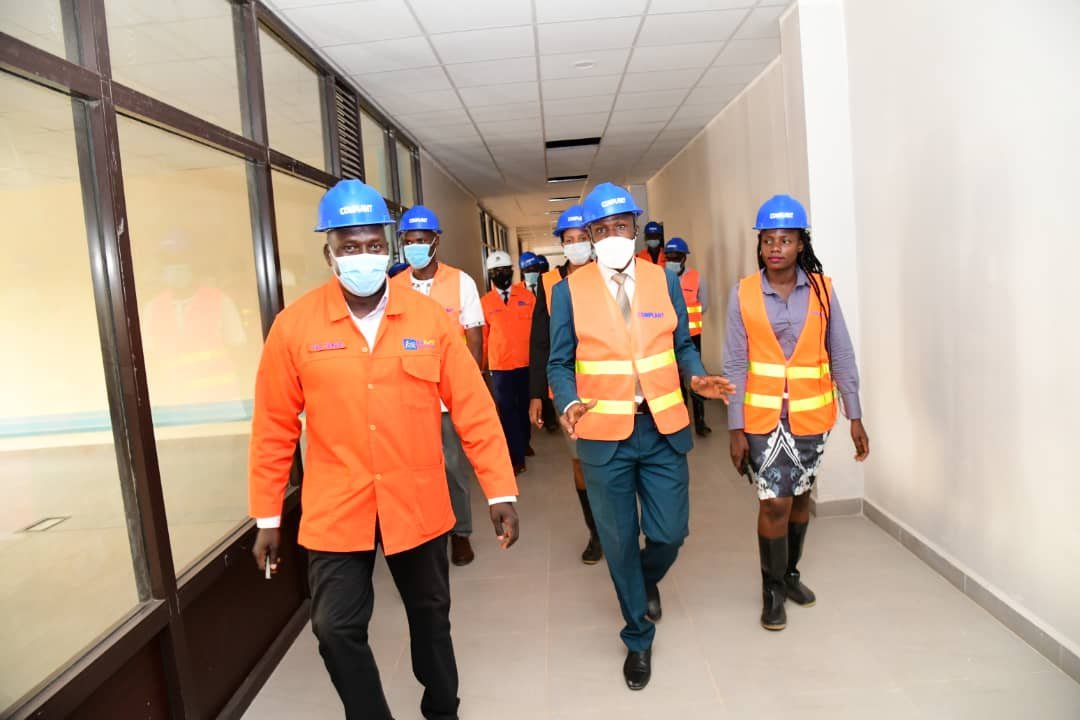Members of Parliament have visited National Medical Stores (NMS) facilities to assess its abilities as the institution moves to fully automate its supply chain systems.
“We have come to see what is on ground in terms of achievements and challenges in as far as implementation of government programmes in regard to delivery of essential medicines is concerned,†said Parliament Health Committee member, Dr. Michael Bukenya (Bukuya County).
“We toured the old facility in Entebbe and the new pharmaceuticals warehouse which is about to be launched soon,†he added.
“We have appreciated how NMS is being innovative in delivery of health supplies and managing its finances.â€
Bukenya further said MPs would continue to monitor operations of NMS and other sister agencies to ensure the common man is able to access drugs in the remotest parts of the country.
NMS’ mandate is to procure, store and deliver drugs to health facilities across the country.
The Health Committee inspected the cold storage rooms where experts took them through the process of handling critical vaccines.
The lawmakers were surprised to learn that the new NMS warehouse in Kajjansi off Entebbe road will use green energy to power its operations.
NMS’ Chief Stores and Operations Officer, Paul Okware, told MPs that the huge structure sitting on 10 acres will not have air conditioning.
“There will be plenty of fresh air. We also have over 200 solar panels to generate the electricity we need,†said Okware, adding, “a medical oxygen gas plant capable of filling over 100 cylinders will be installed as soon as possible.â€
The solar panels will generate 0.3 megawatts of electricity, leading to a reduction in power bills.
The building boasts an extensive room for cafeteria, permanent dedicated space for breastfeeding employees, gym and office space for 200 staff.
It also has a gym for staff to keep fit because they work for long hours.
The spacious warehouse in Kajjansi will allow vehicles drive in to pick and drop medicines which is not the case at the stores in Entebbe.
The cold rooms which store sensitive medical supplies such as vaccines and laboratory commodities will have their storage capacity increased five-fold at the new structure.
To reduce the costs of servicing transport vehicles, space has been created for an in-house service centre.
On his part, Okware emphasised the need to maintain NMS’ autonomy to remain flexible in managing the distribution of essential medicine.
“We can’t even ask a health facility to wait for two weeks. If we kept our budget, we would remain flexible to serve our people better,†said Okware.
Drug theft
MPs said they were keen on plugging loopholes exploited by officials at the district and health centre levels to steal government drugs.
To mitigate theft and other loss of EMHS along the supply chain, NMS is implementing an Enterprise Resource Planning (ERP) system that is intended to digitize the entire supply chain process end to end in order to ensure effective tracking of EMHS to the final users.
Upon full operationalization of ERP, NMS will have the capacity to trace the medical supplies to the final user (patients and other healthcare clients) through individual identification using the national identification number (NIN) that will be captured into the ERP system.
This will provide end user data that will then be reconciled with procurement and distribution data to ensure that there is no leakage in the supply chain.

















